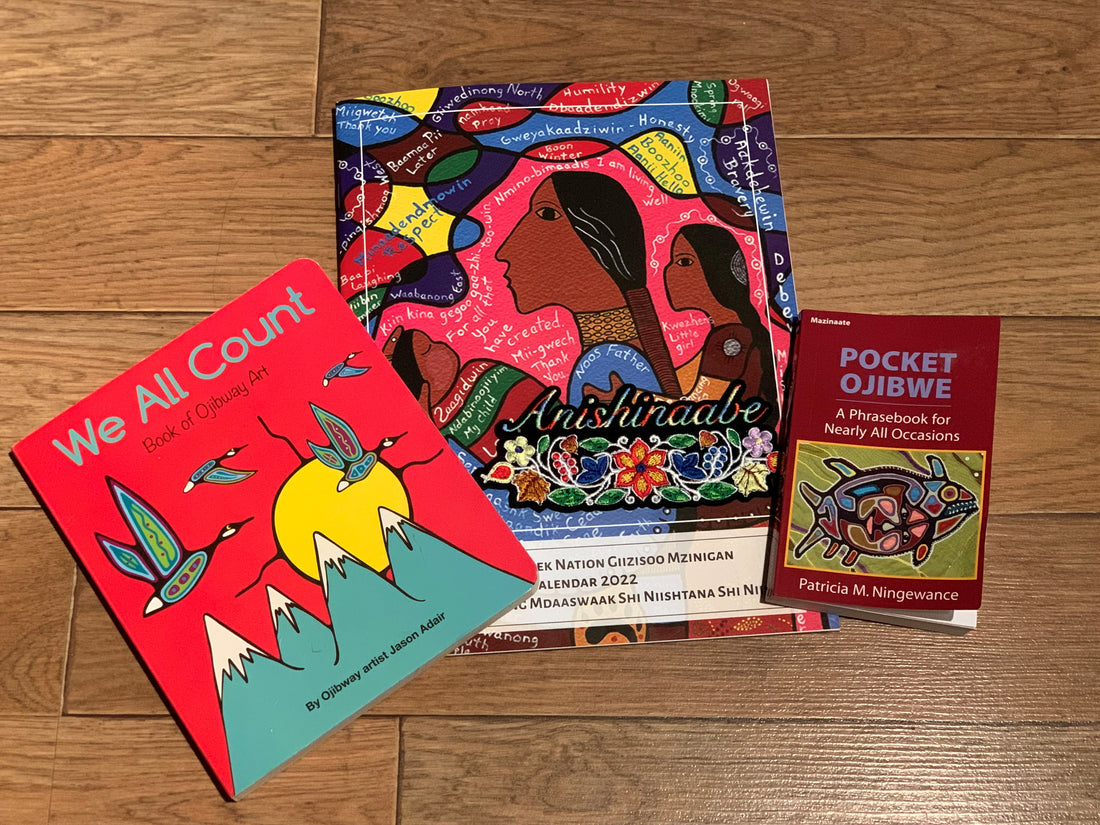
Anishinaabemowin: My Journey So Far
Share
Aanii nwiijkiwenyig (Hello my friends)!
Today, I’d like to share a little about my relationship with my ancestral language, Anishinaabemowin. I grew up with only a few words in the language that we used to refer to as Ojibway. As a toddler, my mom taught me how to say nbiishaaboo (tea) and I’ve never forgotten that word. When I would visit my family in Wiikwemkoong (Wikwemikong), I would hear the greeting aanii, nish naa? but my knowledge didn’t go much further. In university, I pursued a minor degree in Aboriginal Studies to connect more with my heritage and to better understand the political climate for Indigenous people at that time. A language course was a requirement so I studied Oji-Cree or the Severn Dialect which included their syllabic writing system.
During this language journey, I have learned that there are many dialects of Anishinaabemowin and many different spellings of the same or similar words. Like Paul and Isadore: Living Anishinaabemowin discuss in their video series, I’ve heard that the dialects are so similar that people of different regions are able to communicate with each other without adjusting their speech. As a member of the Wiikwemkoong diaspora who grew up in Northern Ontario and now lives in Southern Ontario, I have been exposed to a number of different dialects. Along with my university education and the fact that I am far from fluent in any of the dialects, I’ve found that it is difficult to keep them all straight! I try to stick to the Wiikwemkoong dialect and spelling as much as possible, however, on occasion, I will use others depending on the resources that are available to me. For example, the name for our Miskwaadesiwag Socks comes from the Lac Seul dialect meaning “river turtles” (from Pocket Ojibwe: A Phrasebook for Nearly All Occasions by Patricia M. Ningewance).
Learning any language is a lifelong journey filled with innumerable nuances and I admire anyone who is brave enough to use a language that isn’t their mother tongue. Many of our ancestors were not allowed to speak their own languages and that trauma is still alive in the larger Indigenous community today so, while I respect that some people are purists about dialect, I believe that all attempts to use our language are steps in the right direction of reclaiming our culture.
Nwii-kendaan waa-zhi-anishinaabemoyaanh. (I want to learn how to speak the language.) - Translation from the Anishinabek Nation Giizisoo Mzinigan Monthly Calendar 2022
Baamaapii (Until next time)!
- Caitlin Wemigwans (Little Feather), Owner/Designer Pre&Peri
